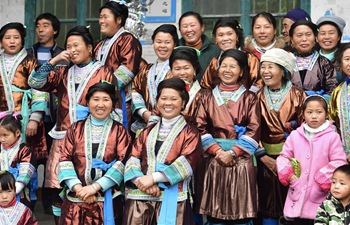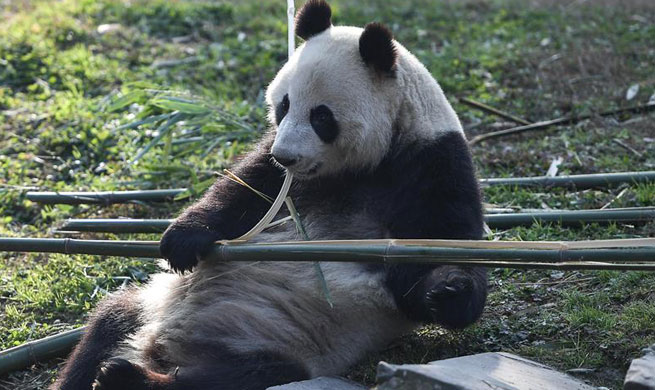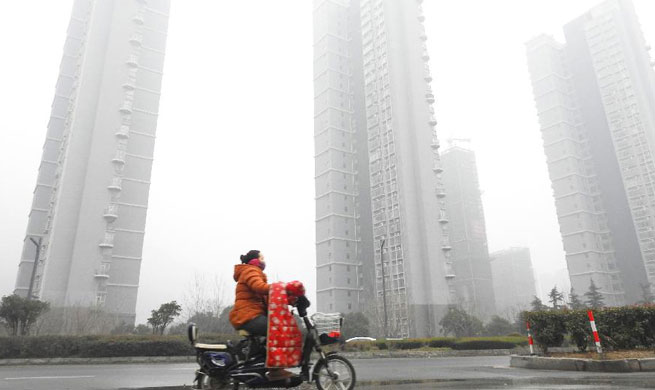TOKYO, Jan. 17 (Xinhua) -- Two opposition parties which had taken steps towards forging a parliamentary alliance saw a breakdown in negotiations Wednesday with both sides failing to overcome differences in policy and stances regarding security and constitutional amendment.
On Monday, Motohisa Furukawa, secretary general of the Party of Hope and Teruhiko Mashiko, who serves the same position in the Democratic Party, vowed to create an alliance that could challenge the ruling Liberal Democratic Party (LDP).
Were the potential merger to have come to fruition, the alliance would have created the largest opposition group in both chambers of Japan's parliament, overtaking the Constitutional Democratic Party of Japan (CDPJ).
However, rank-and-file lawmakers on both sides could not reconcile their differences on key issues, and the Democratic Party leadership reportedly failed to gain support from within the party for the alliance in a meeting held earlier in the day.
The Party of Hope, meanwhile, said that it will put an end to negotiations as of today and said that a relationship of trust with the Democratic Party had collapsed.
Launched by Tokyo Gov. Yuriko Koike just prior to the Oct. 22 lower house election, the Party of Hope absorbed a number of conservatives from the Democratic Party to run on its ticket, while many liberals from the then Democratic Party joined the CDPJ ahead of the election.
The two parties have been at odds, however, over contentious security legislation that was forced into law in 2016 despite mass public and political opposition, with the Democratic Party maintaining that part of the legislation is unconstitutional.
The legislation led to a reinterpretation of a key pacifist clause in Japan's Constitution, allowing Japan's Self-Defense Forces to exercise collective self-defense.
Japanese Prime Minister Shinzo Abe, also the leader of the LDP, has proposed amending Article 9 of the Constitution for the first time since World War II to achieve his controversial career goal of normalizing Japan's military forces and broadening their international footprint.
Abe's aims to further loosen the constraints on Japan's military by way of amending Japan's Supreme Law requires two-thirds majority support in both chambers of parliament and a majority in a public referendum.
The contentious notion is opposed by the majority of Japanese citizens according to the latest media polls and has raised concerns in the regional and international community.
This is owing to Japan's past wartime atrocities and propensity to whitewash them and continued increases to its military spending and planned acquisitions of next-generation offensive military hardware under Abe.
Such acquisitions run contrary to Japan's anti-war, defense-only Constitution, legal scholars and military analysts have attested, and could further unsettle regional peace and stability.
With the breakdown in negotiations between both parties coming just days before the Diet session is set to convene on Monday, sources close to the matter said Wednesday that a group of senior lower house members from the Democratic Party may seek to forge an alliance with the Constitutional Democratic Party of Japan.
The senior lower house members include former Prime Minister Yoshihiko Noda and former Deputy Prime Minister Katsuya Okada.
As for the Party of Hope also dividing amid a rift in its ranks, the notion was shut down by Shigefumi Matsuzawa, who heads the party's upper house members, Kyodo News said following an interview with Tamaki earlier in the day.

















